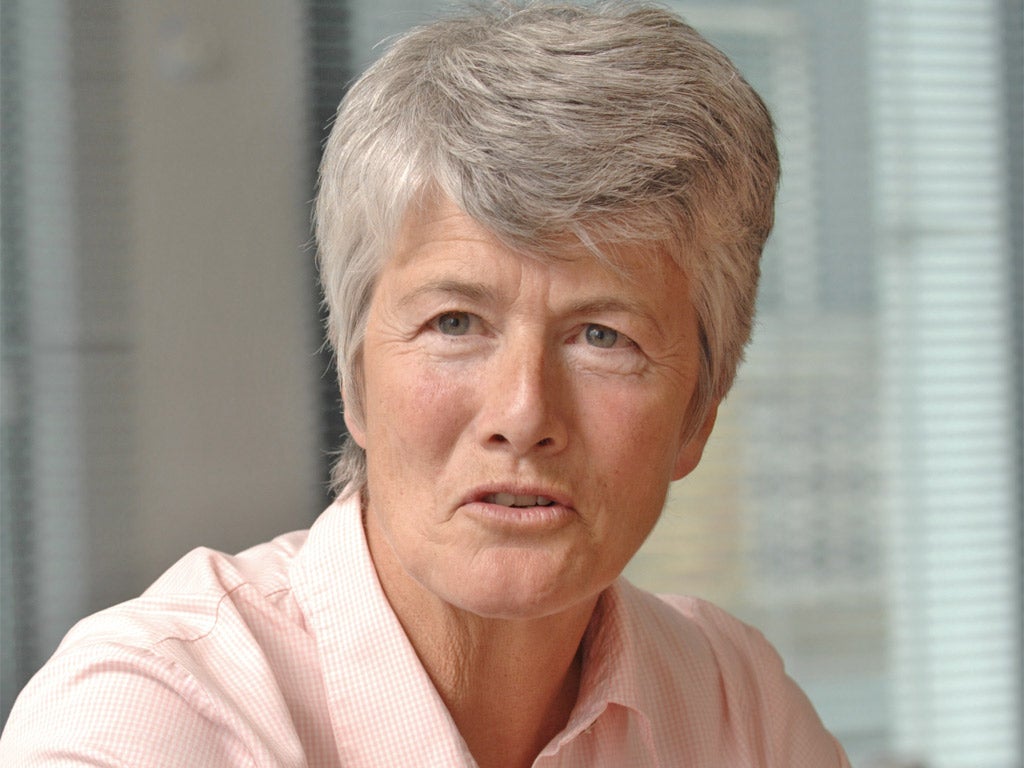Barclays' former pay chief Alison Carnwath argued against Bob Diamond bonus

Barclays former pay chief today said she had called for no bonus to be paid to the beleaguered bank’s previous chief executive Bob Diamond and described some bankers’ pay as “obscene”.
Alison Carnwath told the Parliamentary Commission on Banking Standards that she was ultimately over-ruled by the remainder of the board, which followed the recommendation of former chairman Marcus Agius to pay Mr Diamond his millions in 2011.
She described herself as “amazed” at Mr Agius’ view that Mr Diamond deserved a bonus for a year in which Mr Diamond himself had described performance as “unacceptable”.
Both Mr Agius and Mr Diamond quit their jobs in the wake of the Libor interest rate fixing scandal that cost Barclays £290m in fines to regulators on both sides of the Atlantic.
Ms Carnwath, who was chairman of Barclays remuneration committee until last summer when she resigned for personal reasons, also said she felt Mr Diamond “over-paid” colleagues in his investment bank in a misguided attempt to secure their loyalty.
“Bod Diamond had always enjoyed a generous package. I really believe he thought he found loyalty in people around him by paying them very well, in my view, more than he needed,” she told members of the Commission.
Ms Carnwath, herself a former investment banker, also rounded on what she saw as a “culture of entitlement” that has emerged in banking. “This has resulted in the fear of losing good people, obscene levels of award in a minority of cases and excessive reward in many cases for the investment banking community.”
Mr Diamond was awarded a £2.7m annual bonus for 2011 despite the bank missing his own targets although that is only one part of his package which has been put at close to £20m for that year.
More then a third of shareholders voted against the company’s remuneration report and more than a fifth voted against Ms Carnwath’s re-election, as she carried the can for the payment.
But it subsequently emerged that she alone had objected to Mr Diamond’s deal.
She publicly confirmed that before the Commission, in an unusual display of candour by a non executive director. Such people only rarely put their heads above the parapet despite their role in overseeing executives on behalf of shareholders.
Explaining the decision to pay Mr Diamond, Ms Carnwath said: “It is my belief that a lot of people felt that Mr Diamond needed to have this bonus, it was important to him... He needed recognition in this sort of way”.
She said Mr Diamond had proved himself to be “very talented” at building up Barclays’ profitable investment banking business but “we were talking about a bonus for his role as CEO going forward. It was his first year as ceo and I just didn’t think it was appropriate”.
Ms Carnwath said she felt there were some Barclays directors who were “sympathetic to my point of view” but said that they “generally went with the chairman (Mr Agius).”
She still serves as a director of a number of companies including property giant Land Securities, which she chairs.
Committee members later rounded on Sir John Sunderland, the current chair of Barclays remuneration committee, who insisted that Mr Diamond had deserved to be paid something.
And they questioned whether the bank could truly say it had reformed its culture, and the message that might be sent out if Mr Diamond’s successor Antony Jenkins were to be paid a seven figure bonus.
He could be due that despite being in the top job for only a matter months.
Earlier former chancellor Lord Lawson had some sharp exchanges with Carol Arrowsmith, who advises on boardroom pay for Deloitte, the City consultant.
They came after he described remuneration consultants as a profession that “make prostitutes thoroughly respectable”.
Subscribe to Independent Premium to bookmark this article
Want to bookmark your favourite articles and stories to read or reference later? Start your Independent Premium subscription today.

Join our commenting forum
Join thought-provoking conversations, follow other Independent readers and see their replies